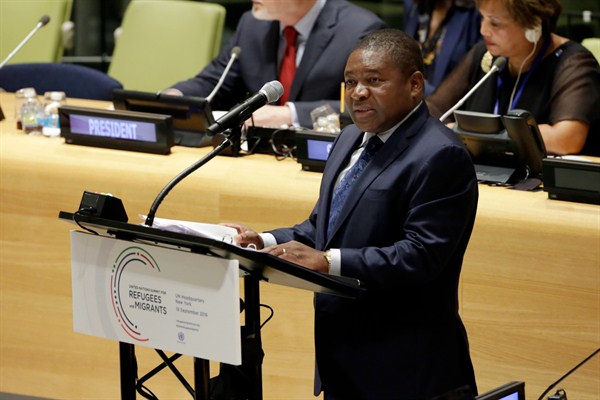In October 2014, Mozambique held its fifth consecutive general elections since ending its civil war in 1992. After violence returned in 2013 between the government and the former rebel group turned political party known as Renamo, the two sides agreed to a cease-fire that included a deal on administering elections and a commitment to work together to reduce barriers to Renamo’s full political and economic inclusion. Less than six months later, though, the cease-fire fell apart. Thousands were forced from their homes by the fighting. Death squads assassinated at least a dozen Renamo officials, and two sustained international peace efforts—one to disarm and integrate Renamo forces, a second aimed at a broader peace settlement—failed.
Now a new effort is underway to bridge the remaining divides. The latest cease-fire, launched in a phone call between Renamo’s leader, Afonso Dhlakama, and President Filipe Nyusi in late December, is holding and has been formally extended to May 4, while a new round of negotiations has been launched with international support. But their success depends on addressing two longstanding and unresolved issues: decentralization of political power and the integration of Renamo into Mozambique’s security sector.
Renamo emerged in the 2014 elections as a political force to be reckoned with, winning 37 percent of the presidential vote and 89 of 250 seats in the Assembly of the Republic, Mozambique’s parliament. The ruling Frelimo party lost 50 seats and saw its presidential vote share fall from 75 percent to 57 percent. Dhlakama won a majority of the presidential vote in five central provinces—Nampula, Zambezia, Tete, Manica and Sofala—and after the elections, he demanded that Renamo be allowed to appoint governors there.

